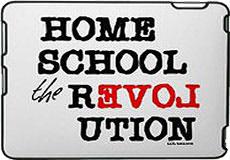The Most Radical Social Movement in America
Gary NorthIt’s homeschooling, and it terrifies the establishment

I have just read the best article in National Reviewthat I can remember in the last 40 years. Of course, this is not saying a great deal, because I stopped reading National Review about 40 years ago. I used to write for it occasionally. My introduction to the magazine was in the fall of 1959, when I was a freshman at Pomona College. I read it faithfully for about five years, and intermittently until the early 1970s. After that, my interests shifted.
The article I refer to has a great title: “The Last Radicals.” It was written by Kevin D. Williamson. It begins with this paragraph.
There is exactly one authentically radical social movement of any real significance in the United States, and it is not Occupy, the Tea Party, or the Ron Paul faction. It is homeschoolers, who, by the simple act of instructing their children at home, pose an intellectual, moral, and political challenge to the government-monopoly schools, which are one of our most fundamental institutions and one of our most dysfunctional. Like all radical movements, homeschoolers drive the establishment bats.
I think this assessment is correct. Homeschooling now qualifies as a movement. It is certainly radical, in that it has taken a public stand, with money on the line, against the public schools.
It stands against the only American institution that can legitimately claim for itself this unique position: it is the only established church in the nation. It has a self-accredited, self-screened priesthood, as every church must. It has a theology. Its theology is messianic: salvation through knowledge. But this knowledge must be screened and shaped in order to bring forth its socially healing power.
Massachusetts was the last state to abolish tax funding of churches. That was in 1832. In 1837, the state created the nation’s first state board of education. It was run by one of the crucial figures in American history, the Unitarian lawyer Horace Mann. He believed that the public schools should perform much the same function that the established Congregational churches had performed for two centuries in Massachusetts. The schools would produce what the churches had failed to produce, a new humanity. They would transform sin-bound man by means of education.
No comments:
Post a Comment